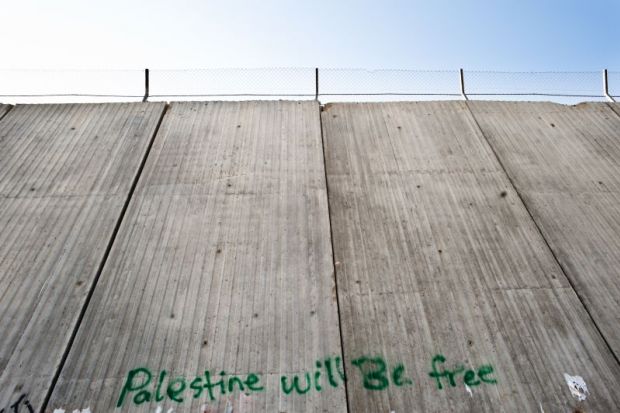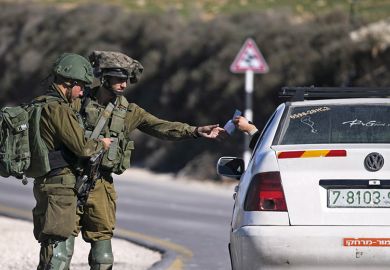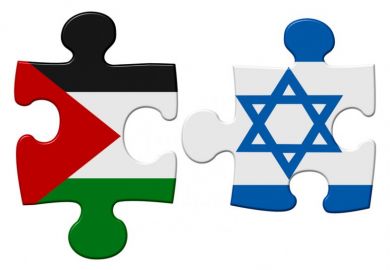Article 26 of the Universal Declaration of Human Rights says that “education shall be directed to the full development of the human personality and to the strengthening of respect for human rights and fundamental freedoms”, such as the right to justice and freedom of expression.
Israel is signed up to that declaration, yet, as reported in Times Higher Education and elsewhere, it has made it harder and harder for international scholars to teach at Palestinian universities, driving one institution to launch legal action.
Israeli journalist Amira Hass asserts that Israel’s creation of a Kafkaesque bureaucratic nightmare for any international scholar wishing to teach at a Palestinian university is part of the larger logic of Israel’s occupation of Palestine, which involves an “onslaught against the Palestinian people [that] is multisystemic”. That logic involves the continual denial of basic human rights to the Palestinians, including the right to education. Indeed, an attack on the right to education is an attack on the ensemble of rights that allow individuals to participate fully in the world.
The reason that international scholars are important to any university, in any part of the world, is that they provide unique perspectives emanating from different cultures and places, and enrich the intellectual conversation among students and faculty. International scholars help train those students for global citizenship and, in turn, those students help visiting scholars to understand their country and culture better.
A statement from the Committee on Academic Freedom of the US-based Middle East Studies Association addresses all of these issues. It asserts that Israel’s actions “imperil the right of Palestinians to education, isolate the Palestinian community from the rest of the world, and may eventually cause severe harm to the educational and employment opportunities of the next generation of Palestinian students.”
This is more than simple harassment. These actions are intended to show the deep reach of the Israeli state into all aspects of Palestinian life. In this case, it is interference with whatever semblance of normal functioning Palestinian universities might have. It sends the message that Israel does not want international scholars in the Occupied Palestinian Territories, and that if one wants to travel there to teach, Israel will make that as hard as possible.
The picture is quite different for international scholars coming to teach at Israeli universities. In another article, Hass notes: “There is a clear and convenient Interior Ministry procedure for hiring foreign academics by Israeli universities. For West Bank universities, there is no parallel procedure – and it must be an Israeli one, because Israel controls the borders and determines who enters the Palestinian enclaves.”
It is precisely this “lack of parallels” that indicates the dramatically uneven situation for Palestinians – in terms not only of education but all aspects of everyday life, including the hopes young people might have for the future.
The UN Convention on the Rights of the Child, ratified by Israel in 1991, recognises the importance of childhood as a crucial time for growth and development. It also recognises childhood as a time of increased vulnerability. The organisation Defense for Children International-Palestine reports that in its 2014 attack on Gaza, Israel damaged more than 200 schools, and completely destroyed 29 others. In that attack, more than 1,000 Palestinian children were permanently disabled, and the World Health Organization has reported a massive mental health crisis among children in Gaza.
While the denial of visas to international scholars might seem a small inconvenience by comparison, put into the context of the overall weakened conditions of Palestinian schools and universities, as well as the totality of deprivation the Palestinians suffer under, it is a terrible thing indeed. The international community, especially the international academic community, needs to wake up.
David Palumbo-Liu is Louise Hewlett Nixon professor of comparative literature and, by courtesy, of English at Stanford University.
Register to continue
Why register?
- Registration is free and only takes a moment
- Once registered, you can read 3 articles a month
- Sign up for our newsletter
Subscribe
Or subscribe for unlimited access to:
- Unlimited access to news, views, insights & reviews
- Digital editions
- Digital access to THE’s university and college rankings analysis
Already registered or a current subscriber?








